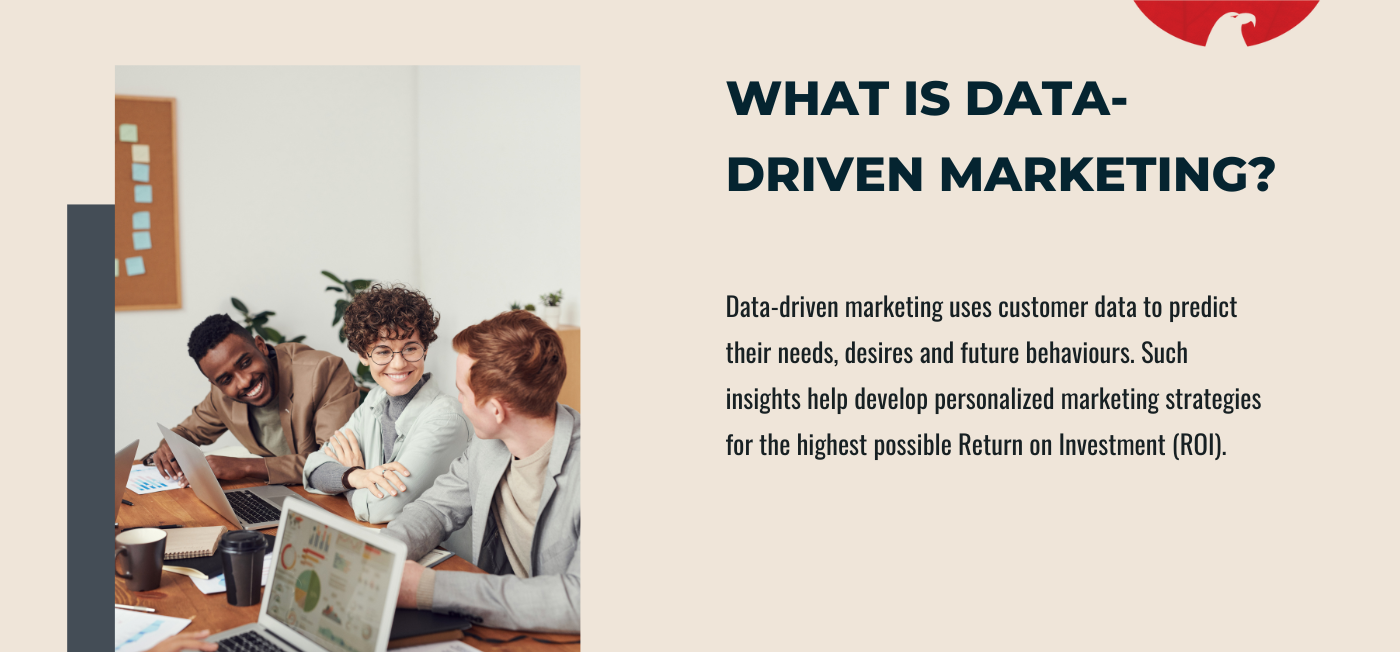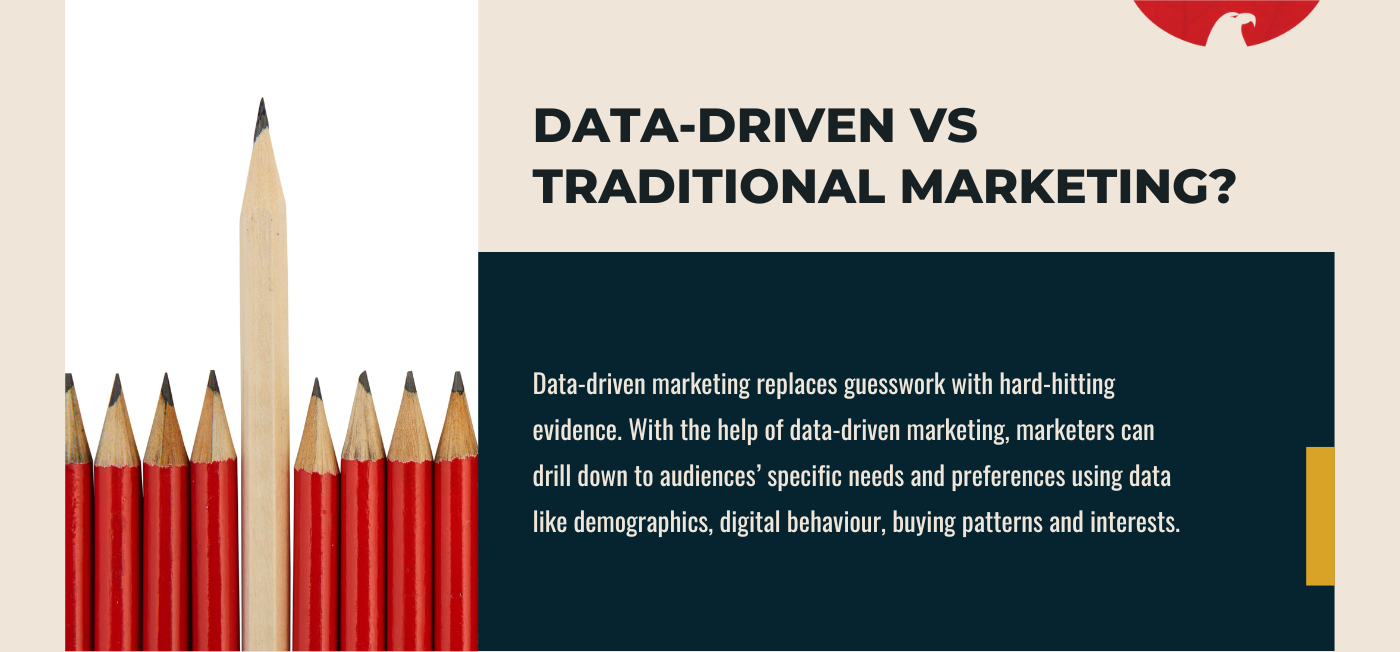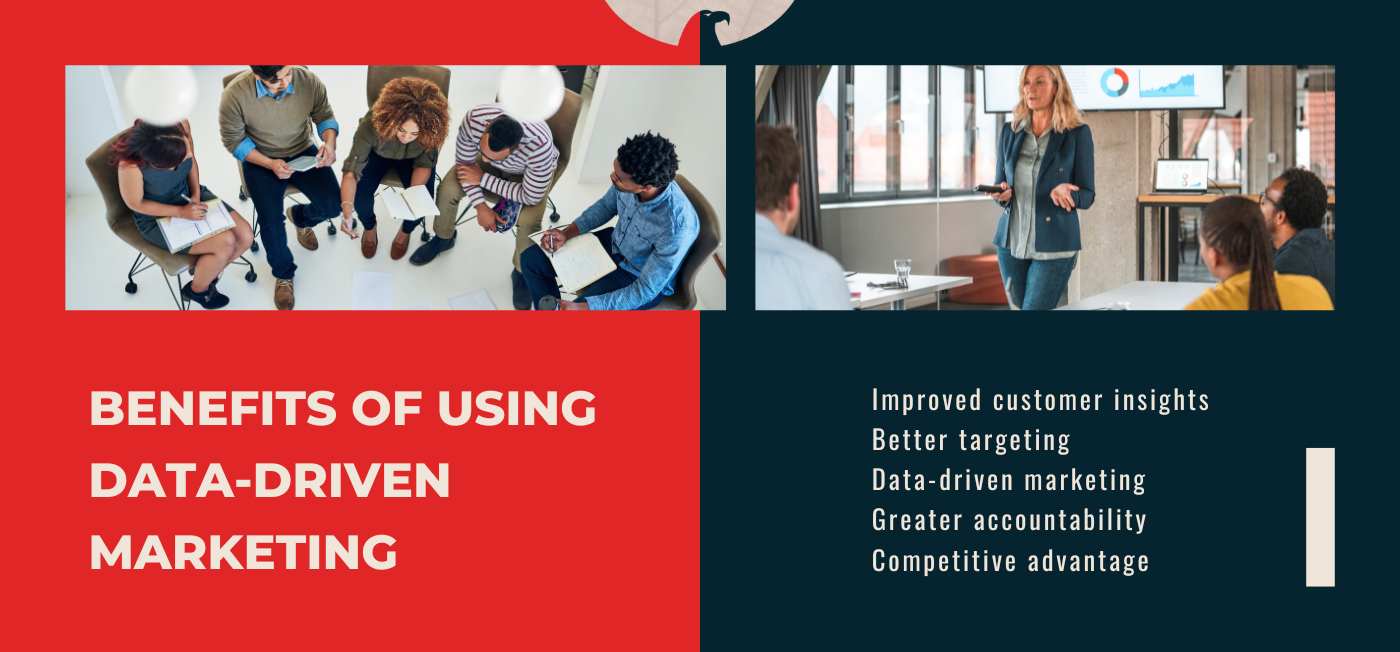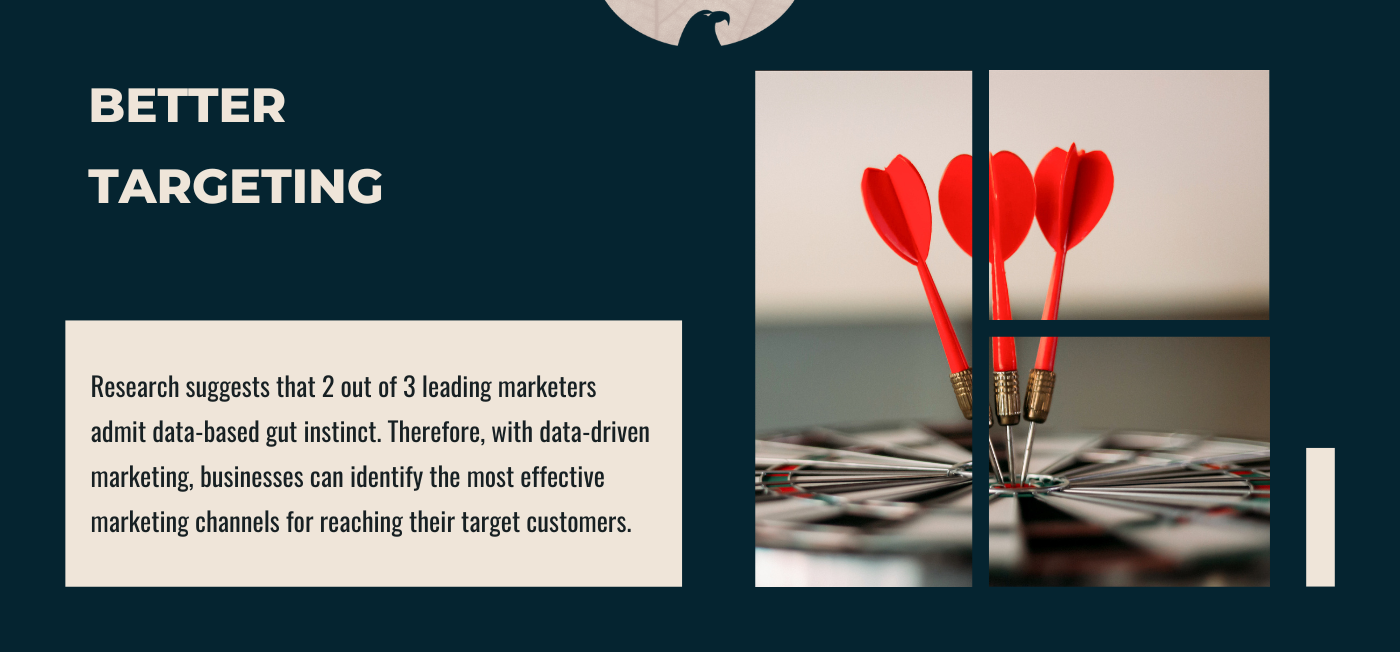
Win the business race with data-driven marketing and its strategies!
Targeting the right people at the right time is the ultimate goal of marketing departments all over the world. To accomplish this goal, marketers often leverage data to achieve their objectives. Data-driven marketing helps you maximize your investments under a bold strategic vision to transform your business.
Data-driven marketing is the very thing that stands between a business and an organized marketing approach that pumps out demonstrable and verifiable results. Before we begin, let us understand the concept of data-driven marketing and what it means to implement it for an organization.

What is data-driven marketing?
Marketing has undergone a fundamental transformation. Now, businesses and marketing professionals are not working on assumptions or gut feelings. They are looking for data-driven content. Data-driven marketing uses customer data to predict their needs, desires and future behaviours. Such insight helps develop personalized marketing strategies for the highest possible Return on Investment (ROI).
How is data-driven marketing different from traditional marketing?
Data-driven marketing replaces guesswork with hard-hitting evidence. With the help of data-driven marketing, marketers can drill down to audiences’ specific needs and preferences using data like demographics, digital behaviour, buying patterns and interests. This way, marketers can reach their audiences at the right time and place with the most personalized messages and offers to increase conversion.

Traditional marketing can help spread awareness and build brand recognition to attract customers from the market, but companies need a data-driven marketing strategy to nurture their target audiences.
Considering channel selection, companies need a data-driven marketing strategy to help businesses identify the most effective marketing channels for reaching the target audience. On the other hand, traditional marketing may rely on more established marketing channels.

Benefits of using data-driven marketing
Data-driven marketing relies heavily on data analysis to make informed decisions. Data-driven marketing focuses on personalization, measurement, channel selection and optimization. Our team will list some critical benefits of data-driven marketing in this section.
Improved customer insights
Data-driven marketing allows businesses to understand better their target audience – their behaviours, preferences and needs. The information can also personalize marketing messages and improve the customer experience.
As per statistics, data-driven marketing leads to increased conversion and customer acquisition, according to 78% of organizations. Customer information allows business owners to gain a laser-sharp understanding of their target audience. Insights from targeted customer profiles can increase a marketer’s ability to predict customer behaviour further.

Better targeting
Research suggests that 2 out of 3 leading marketers admit data-based gut instinct. Therefore, with data-driven marketing, businesses can identify the most effective marketing channels for reaching their target customers. This can lead to more efficient and effective marketing campaigns.
Data-driven marketing helps businesses collect data based on their behaviour and preferences. Data-driven marketing enables businesses to personalize marketing messages based on the customer profile created. This can help increase engagement and improve customer experience and loyalty, which ultimately leads to increased conversions.
Greater accountability
By measuring marketing outcomes, data-driven marketing provides greater accountability for marketing spend. This can help businesses make more informed decisions about future marketing investments. By identifying the most relevant audience for marketing, companies can save marketing spend on audiences that might not be interested in their products and services.
Competitive advantage
By using data to inform marketing decisions, companies can stay up-to-date with changes in the market and respond quickly to new opportunities. Data-driving marketing can help improve accountability by measuring outcomes, identifying ROI, testing and optimizations, targeting the right audience and predicting future results.
How to create a marketing strategy using data?
You might be wondering how businesses can create a marketing strategy using data. So, here is a quick walkthrough of how your team can set up a data-driven approach.
Step 1 – Set up objectives for the data
Before rushing to collect data, businesses must decide what they want to achieve and how it will be helpful to them. Identify a clear goal for the data. The objectives will guide your next steps. Businesses will know what information to collect to target customers and what insights to look for.
Step 2 – Gather data
Now that the goals are in place, businesses must identify which information to collect. Look at the objectives and consider what information would help plan a marketing strategy for your business. After that, identify the channels from which companies can access the data.
Step 3 – Collect and organize the data
This step involves two actions. First – decide on a data platform to organize the data. Next, we want to collect data from your sources.
Step 4 – Build the team
Depending on the goals, the company might need to build a team to help analyze and act on the data.
Step 5 – Getting organizational buy-in
Businesses might require getting permission from various stakeholders to incorporate a data-driven approach, particularly if it is the first campaign.
Step 6 – Measure and track the progress
Finally, businesses must devise a process to monitor how the campaign performs. This will help your business analyze the actions and report progress to other stakeholders.
In conclusion
their marketing goals more effectively. By leveraging customer data and insights, companies can create targeted and personalized campaigns that resonate with their target audience, leading to increased engagement, conversions and revenue.
According to a study by Forbes, businesses that adopt data-driven marketing are six times more likely to be profitable year after year. Additionally, 74% of marketers say targeted personalization increases customer engagement, while 73% say it leads to higher conversion rates.
Overall, data-driven marketing is a proven approach to help businesses stay competitive in today’s digital landscape. Companies can use customer data to inform marketing decisions to create more relevant and effective campaigns that drive engagement and revenue.
Follow VantageITeS as we come up with data-driven marketing examples in our next blog. Stay tuned!
